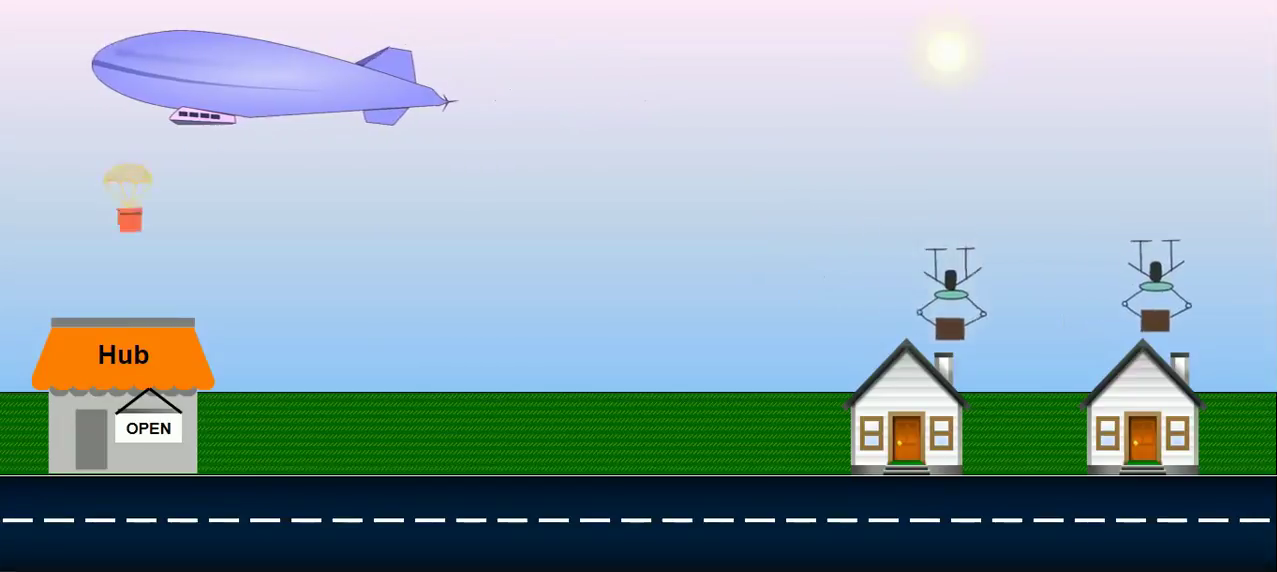My Entry to the DHL Logistics Innovation Challenge
/Source: Techgistics
I entered the 2017 DHL innovation challenge which was a contest to apply the principles of the sharing economy to logistics. There were more than 60 entries and the winner of this year’s challenge was Parcelly, a UK startup that provides on-demand collection points to resolve the problems associated with failed deliveries.
Below is the full written proposal and the (slightly hacky, low tech) video I submitted for the challenge. The proposal required a 1000 word submission that outlines the problem I was trying to solve, the solution, how it works, the benefits, and how it contributes to the share economy. The video had to be under 2.5 minutes and there was a lot to pack into both the video and the written document.
My idea was called Flexi-Deliv, a crowdsourced final mile hub and delivery platform that aims to create a hassle-free delivery experience for online shoppers through a sharing community of local businesses, neighbors, and couriers. The tagline is: It's nice when things are easy. Flexi-Deliv makes home delivery remarkably easy.
My view is that from a customer perspective, convenience trumps speed. Getting a package when and where a customer wants will become far more important than getting it there fast. And while drones and robots will eventually have their place in the last mile, there is existing unused or under-utilized capacity and resources that could be leveraged today without the need for futuristic solutions or the need for costly last mile infrastructure investments by delivery providers.
The solution consists of local businesses and neighbors who have excess space to temporarily store parcels prior to final mile delivery. Any local business or residence with a secure place to keep parcels can share that space which could be ideal for local businesses with under-utilized resources, retirees, homemakers, students, or people who work from home. It’s an easy way to earn some additional passive income simply by staying at home or by having an open business.
Instead of delivery providers driving to many individual residences hoping that the recipient is home, the provider delivers in bulk to these hyper-local final mile hubs where the parcels are stored temporarily prior to final mile delivery.
From the hubs, a community of crowd-sourced couriers make time-definite deliveries to online shoppers. The hubs are geographically situated close to online shoppers so that deliveries from the final mile hubs can be made via low or no-emission vehicles within 10-15 minutes.
Overall it was a fun process and really made me think deeply about potential solutions and technology for last mile delivery. Thanks to DHL for putting on this type of event and to Parcelly for winning the 2017 challenge!
The Problem
Last mile home delivery in cities involves four main stakeholders - online shoppers, retailers, delivery providers, and society - each with their own unique set of problems:
Busy online shoppers lack access to predictable, transparent, and convenient delivery.
- Unable to schedule my delivery at the time I want, like after work.
- Unable to select a time-slot for my delivery at checkout.
- Unable to track my delivery or receive accurate notifications.
- Unable to receive a single delivery for all of my orders across multiple retailers.
- Dealing with mis-deliveries is frustrating.
Retailers struggle to meet their customer's ever-increasing expectations in regards to delivery.
- The inability to offer predictable, transparent, and convenient delivery results in cart abandonment.
- Companies like Amazon have recalibrated customer’s delivery expectations and we can't offer the delivery methods that customers expect.
Delivery provider's existing logistics infrastructure is not designed for home deliveries.
- Delivering a single package to individual homes is far costlier than delivering in bulk to businesses.
- The cost of re-delivery is high when customers aren't home.
The rise of home deliveries has a major impact on society, due to increased congestion, safety, emissions, infrastructure, noise, and overall quality of life. There are simply too many trucks in neighborhoods that weren't designed for these vehicles.
The Solution
Flexi-Deliv is a crowdsourced final mile hub and delivery platform that aims to create a hassle-free delivery experience for online shoppers through a sharing community of local businesses, neighbors, and couriers.
The final mile hub community consists of local businesses and neighbors who have excess space to temporarily store parcels prior to final mile delivery. Any local business or residence with a secure place to keep parcels can share that space which could be ideal for local businesses with under-utilized resources, retirees, homemakers, students, or people who work from home. It’s an easy way to earn some additional passive income simply by staying at home or by having an open business.
Instead of delivery providers driving to many individual residences hoping that the recipient is home, the provider delivers in bulk to these hyper-local final mile hubs where the parcels are stored temporarily prior to final mile delivery.
From the hubs, a community of crowd-sourced couriers make time-definite deliveries to online shoppers. The hubs are geographically situated close to online shoppers so that deliveries from the final mile hubs can be made via low or no-emission vehicles within 10-15 minutes.
Flexi-Deliv operates in the following manner:
- The Flexi-Deliv widget is integrated into the retailer’s online checkout.
- Neighbours and local businesses are registered as final mile hubs with Flexi-Deliv. Local couriers and people with their own transportation assets register as couriers for specific routes. Final mile hubs and couriers install the Flexi-Deliv hub and driver smartphone apps, respectively. Hubs with sufficient forecasted volume will have a secure locker system installed in order to keep parcels well-organized.
- Customers shop online with their favorite retailers and choose ‘Flexi’ as a delivery option, select a delivery date, and narrow time window (I.e. Thursday between 6-8 pm).
- The delivery provider picks up orders from retailers and routes through their existing logistics infrastructure up until the final mile. Every scan event from the delivery provider gets translated into a customer notification and the customer sees a single network for tracking across delivery providers.
- Instead of delivering to the customer, the delivery provider delivers in bulk to the final mile hub closest to the customer's delivery address. The final mile hub scans each parcel received with their smartphone app. The customer receives a notification upon arrival at the final mile hub and are given the option to reschedule.
- A crowd-sourced mobile workforce delivers parcels from the hubs to the customer's door. Drivers sign up for routes via the driver app and are routed by the app in an optimised manner.
- Online shoppers get an Uber-like experience which allows them to track driver locations, receive real-time notifications, and provide feedback upon completion of delivery.
Benefits
The platform allows online shoppers to get predictable, reliable, and transparent time-slot delivery when it’s convenient for them. The friction over delivery is removed so that consumers frankly don’t even have to think about it.
- No more waiting at home for deliveries.
- No more mis-deliveries.
- No trips to pick up packages that weren't delivered.
- Ultimate convenience.
The platform helps retailers boost their conversion rates by eliminating online shopper’s frustration with delivery.
- Remove delivery as a barrier to converting a sale.
- Leverage a platform that enables retailers of all sizes to compete with large players like Amazon.
- Enables future use cases like hubs as pick-up points, returns, and forward stocking of packaged inventory based on predictive analytics.
The platform helps incumbent delivery providers better utilize their existing assets without needing to make costly investments in hyper-local infrastructure that eCommerce requires.
- Completely eliminate the cost of re-deliveries.
- Increased cost efficiency of transport by reducing the number of stops along a route while increasing the number of parcels per stop.
- Decreased risk of local infrastructure investments.
Lastly the platform enables a smarter, greener, and more efficient means of moving parcels over the final mile. A reduction in emissions, pollution, and congestion could be expected along with improvements in safety for pedestrians and commuters ultimately making our cities more sustainable and livable.
Contribution to Sharing Economy Logistics
The Flexi-Deliv digital platform contributes to sharing economy logistics as follows:
- Enables local businesses and neighbours to monetize unused space and generate a passive income.
- Enables couriers and people to use their own assets to make deliveries and work a flexible schedule.
- The platform plays a supply and demand optimization role by matching couriers with deliveries from multiple retailers and delivery providers. Deliveries are aggregated which allows couriers to maximize their earnings via increased delivery density.
- The model contributes to the environment by cutting emissions.











